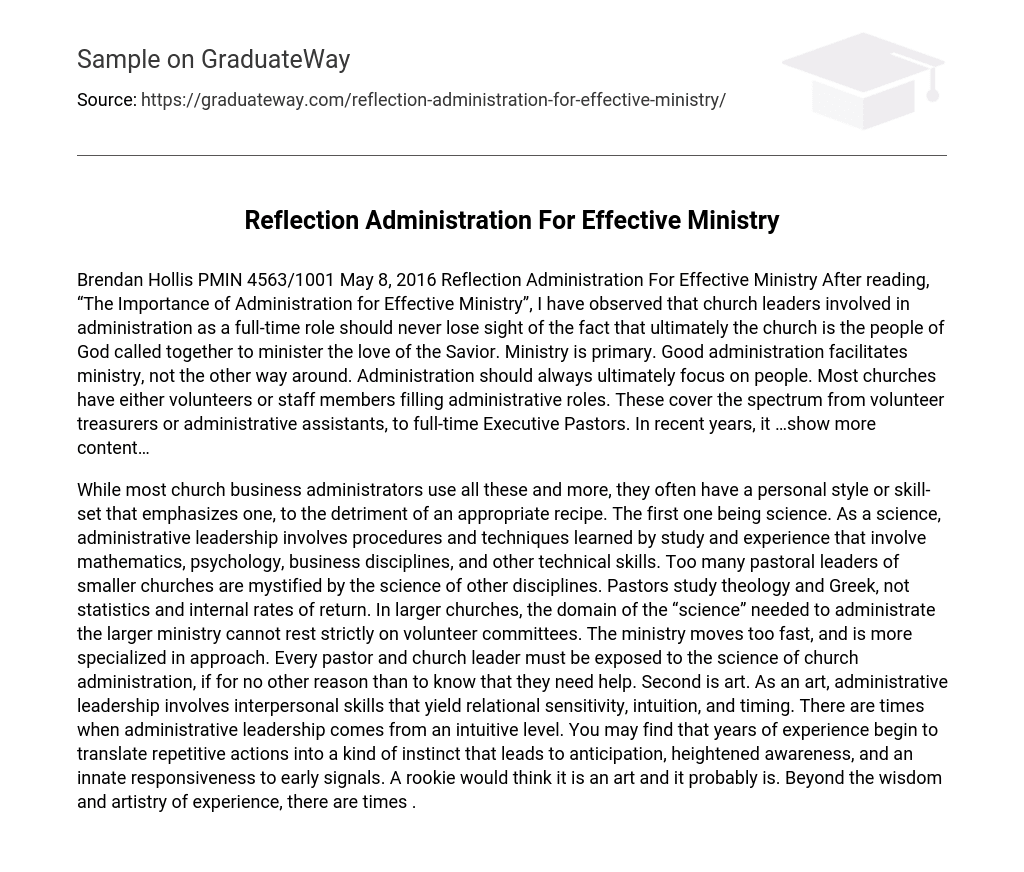“After reading ‘The Importance of Administration for Effective Ministry,’ I have noticed that church leaders who dedicate themselves to administration as a full-time role should never forget that the church is ultimately a gathering of God’s people who come together to serve and spread the love of the Savior. Ministry should always take precedence. Effective administration supports ministry, rather than the other way around. The primary focus of administration should always be on individuals. Many churches rely on either volunteers or staff members to fulfill administrative positions, ranging from volunteer treasurers or administrative assistants to full-time Executive Pastors.”
While many church business administrators use various skills and techniques, they often have a personal style or expertise that focuses on and neglects a suitable approach. One primary aspect is science, specifically administrative leadership that entails methods and knowledge acquired through study and experience, including mathematics, psychology, business disciplines, and other technical skills. Unfortunately, numerous pastors leading smaller churches find themselves puzzled by the scientific aspects of different fields since their studies primarily revolve around theology and Greek rather than statistics and internal rates of return.
In larger churches, volunteer committees alone cannot handle the necessary “science” of overseeing a larger ministry. The ministry operates at a faster pace and requires specialized expertise. It is crucial for every pastor and church leader to understand the science behind church administration, even if only to recognize the need for assistance. Additionally, administrative leadership is an art that relies on interpersonal skills to foster relational sensitivity, intuition, and timing.
At times, administrative leadership can emerge from a place of intuition. Through years of experience, repetitive actions can develop into instinct, allowing for anticipation, heightened awareness, and an innate responsiveness to early signals. This instinct may be perceived as an art, showcasing the wisdom and artistry that comes with experience. Nevertheless, there are instances where administrative leadership goes beyond just experience.





